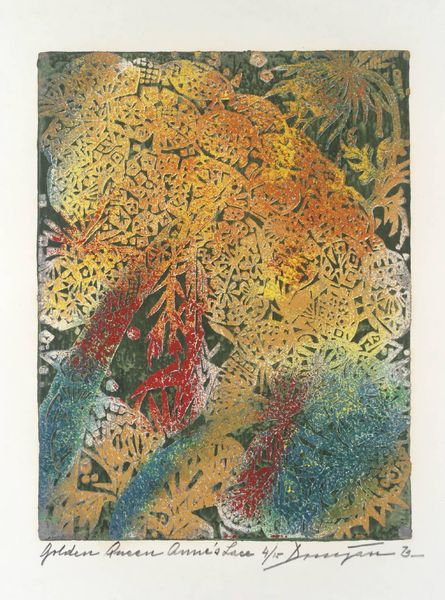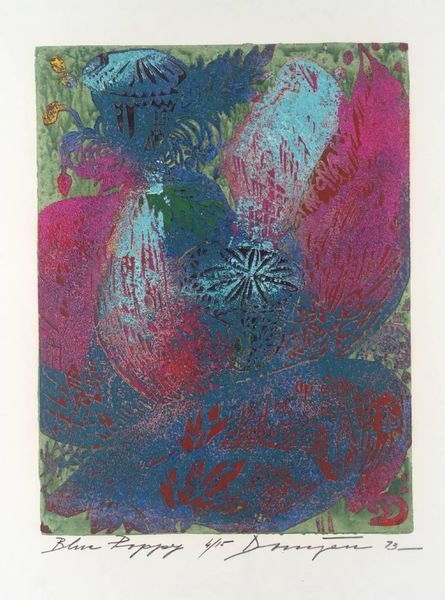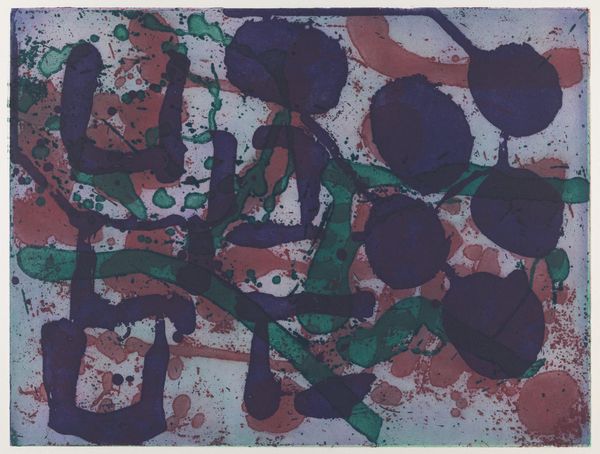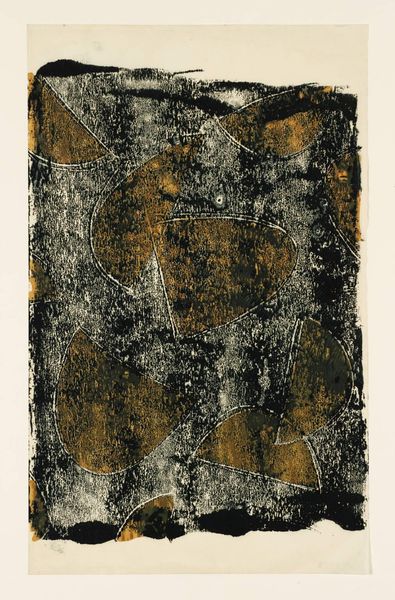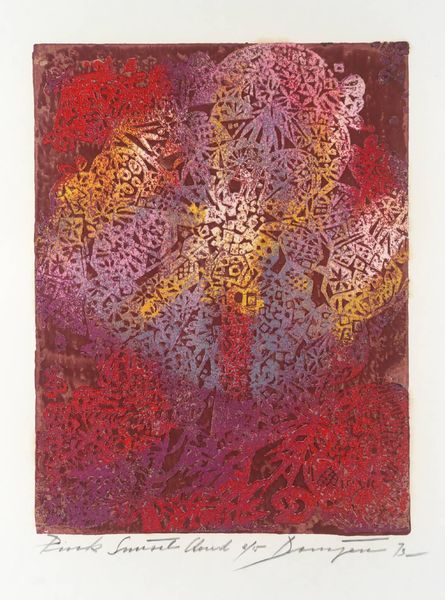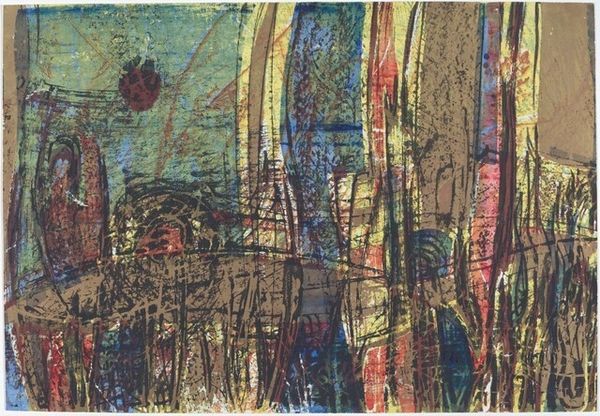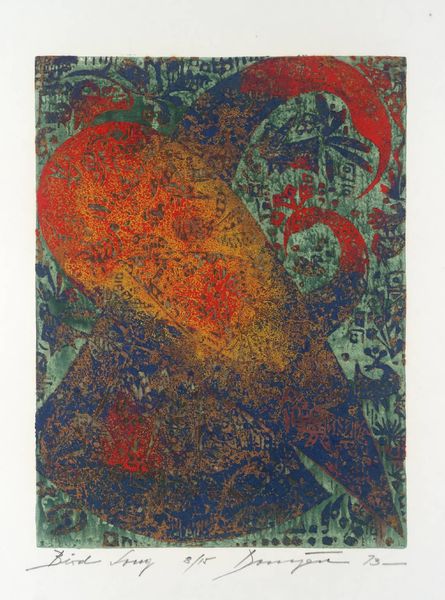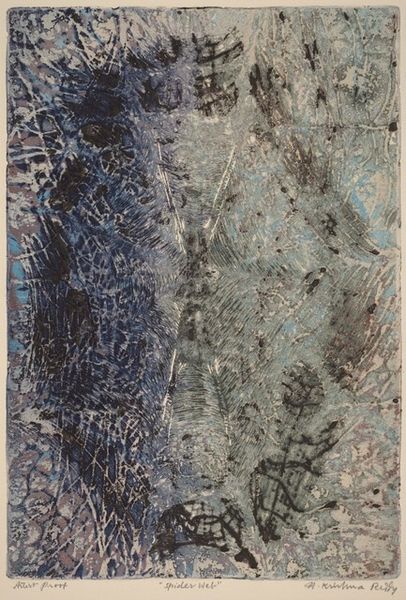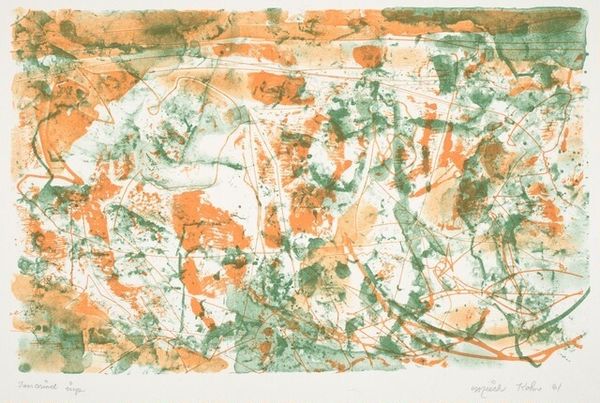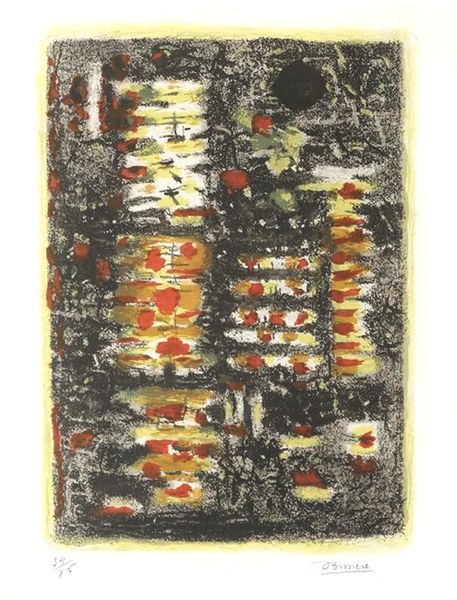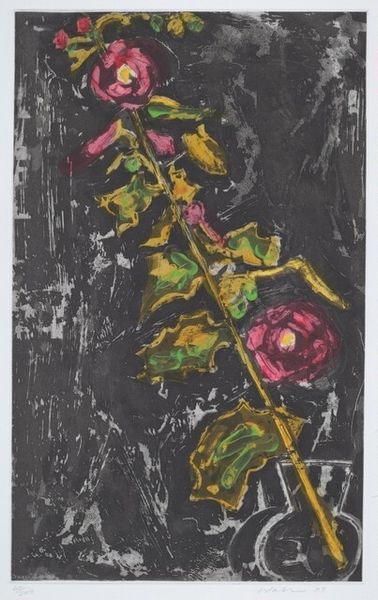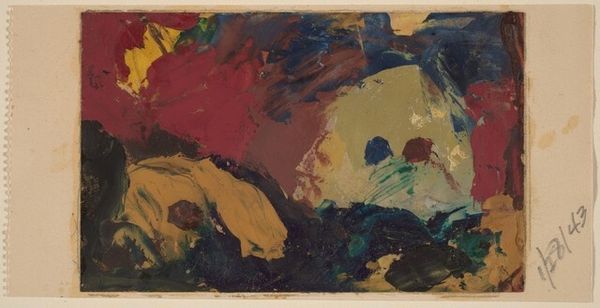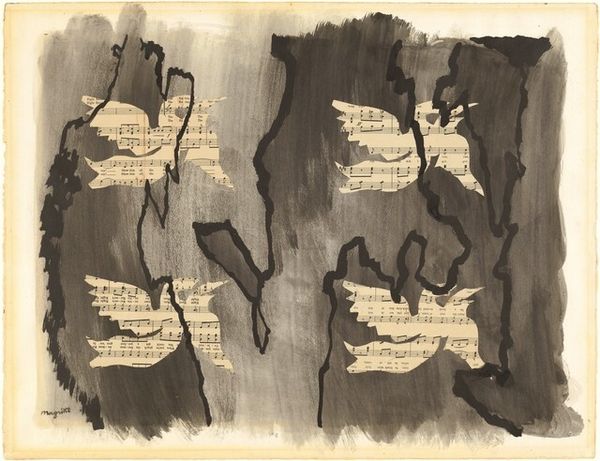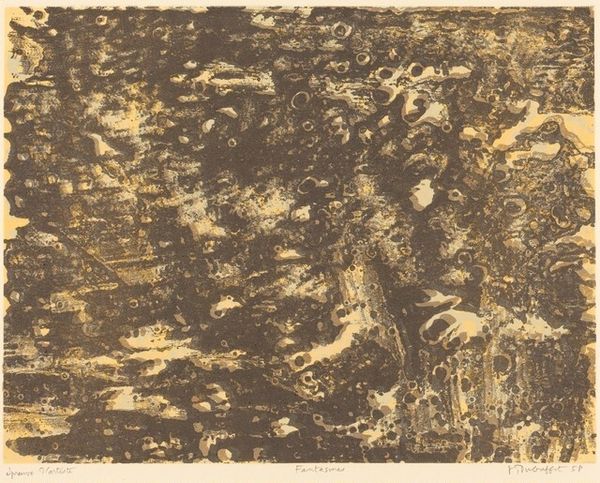
mixed-media, print
#
mixed-media
# print
#
figuration
#
modernism
Copyright: National Gallery of Art: CC0 1.0
Curator: Here we have Jean Lurçat's "Small Fish Becoming Large," created using mixed media in printmaking. What strikes you first about it? Editor: There’s a definite sense of both depth and unease. The fishes feel trapped, somehow. It’s a murky scene. Curator: Indeed, the print evokes complex issues. Lurçat was deeply engaged with the reconstruction of France after World War II, championing social justice, and here he appears to explore transformation. Editor: A socio-political reflection perhaps? Given his post-war context, the title alone seems laden with significance – are we considering the responsibility that power holds and whether unchecked expansion of such should be met with skepticism? I find myself questioning the narratives of progress, asking if bigger is truly better. Curator: Precisely, and I think Lurçat provides fertile ground for doing just that. Consider how modernist abstraction became so associated with notions of utopian advancement. He reintroduces recognizable figures, these fish, inviting critical reflection, maybe even dissent, in that historical period. The imagery seems accessible while also imbued with layers of meaning, asking us about potential dangers inherent within exponential progress. Editor: It also pushes the boundaries of our aesthetic sensibilities within that movement, questioning the structures of privilege embedded in what society dictates as "art" during its rise. It challenges preconceived notions of beauty by showcasing subjects like aquatic life often overlooked while questioning its accessibility both politically and conceptually Curator: It disrupts the smooth narratives, highlighting inequalities hidden beneath claims of prosperity and also serves as a crucial visual response to historical wounds while offering critical examination, as you highlight. A space where he allows for reflection regarding complex societal traumas and recovery. Editor: Absolutely, and through works like this, art institutions, through their choices, hold the key for setting stage to promote empathy while confronting difficult aspects during any process toward reconstruction. Curator: Exactly.
Comments
No comments
Be the first to comment and join the conversation on the ultimate creative platform.
